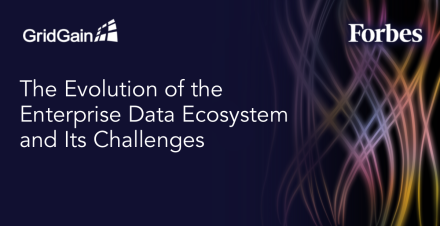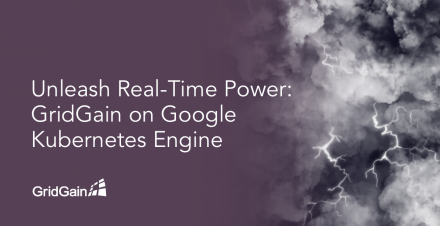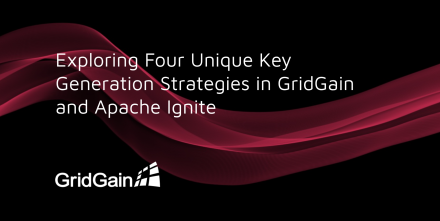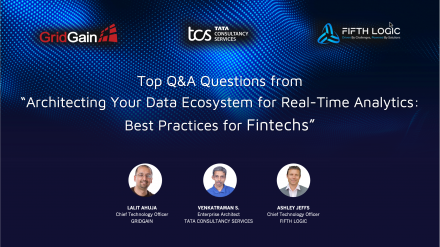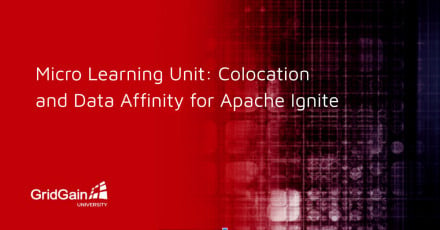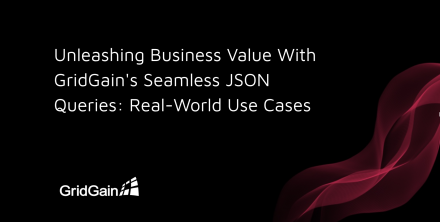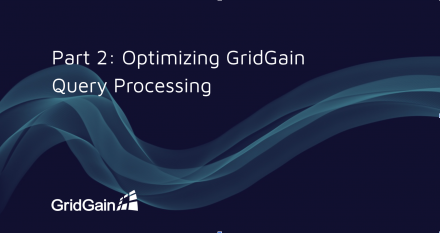The GridGain Systems In-Memory Computing Blog
In his 2005 book, The World is Flat: A Brief History of the Twenty-First Century, Thomas Friedman talked about globalization and a level playing field. Globalization, fading geographical boundaries, and increasing economic dependencies between countries and companies have increased the influence of and dependencies on global information for enterprises worldwide. Global information, characterized…
In today's data-driven world, applications need to be lightning-fast. Users crave instant gratification, and businesses require real-time insights to make informed decisions. Traditional databases, while reliable, can struggle to keep pace with the ever-increasing demands of modern applications. Enter GridGain and Google Kubernetes Engine (GKE), a powerful duo that empowers you to build and…
I still remember the day I boarded my first flight ever – the idea of crossing such a huge distance in a very short time, the excitement of getting on a plane and getting to look down from the window up in the sky floating over the clouds was heightened by the nervous chill as we went through security and gate checks. In fact, I can safely say that the flight was the best part of my trip. …
Some databases have a feature where a column can be “auto-incremented.” In this piece, we’ll explain why GridGain and Apache Ignite do not, and what you can do to get equivalent functionality. The naming varies, but the concept is straightforward: the system automatically generates a key for you if there is no unique business key for a table. Typically, this would be a numeric column, and…
We hosted a rich technical conversation around the data challenges faced by Fintechs on our recent webinar, “Architecting Your Data Ecosystem for Real-Time Analytics: Best Practices for Fintechs.” This included many great questions from our audience during the Q&A. Here is a recap of the Q&A, including questions we weren’t able to get to during the live event. What is driving…
Gartner forecasts that there will be over 8 billion connected devices in use worldwide by the end of 2017. This figure is estimated to reach 20 billion by 2020 and continue to increase dramatically for the foreseeable future. According to the “Cisco Global Cloud Index: Forecast and Methodology, 2015–2020”, the total amount of data created by devices, driven by IoT, will reach 600…
As we move through 2023, enterprises will increasingly demand that their data “circulatory system” – data storage, movement, sharing, processing, and analytics – run on an end-to-end microsecond computing ecosystem.
In the distant past (25 years ago), latency wasn’t a big topic of conversation. Database analytics was performed in batch mode, often nightly or over weekends, and most users were…
This eight-minute GridGain University Micro Learning Unit explores the importance of colocation and affinity to the performance of Apache Ignite data query and computation.
The two largest sources of latency in any distributed system are network latency and disk access. In traditional client server applications, data is constantly moved over the network, and it's usually accessed from…
In today's fast-paced business environment, it’s crucial to gain a competitive edge by quickly extracting meaningful insights from diverse datasets. It is also vitally important to be responsive to changing data as soon as possible. These requirements demand a data solution that is flexible and performant. JSON (JavaScript Object Notation) data format, which supports unstructured or semi-…
Welcome to part two of our blog series on “Understanding Then Optimizing GridGain Query Processing.” To properly understand this second blog, it’s highly recommended that you familiarize yourself with the background material that was shared in the first blog post of this two-part series.
With the requisite background in place, we can now explore how to overcome the limitations of…

